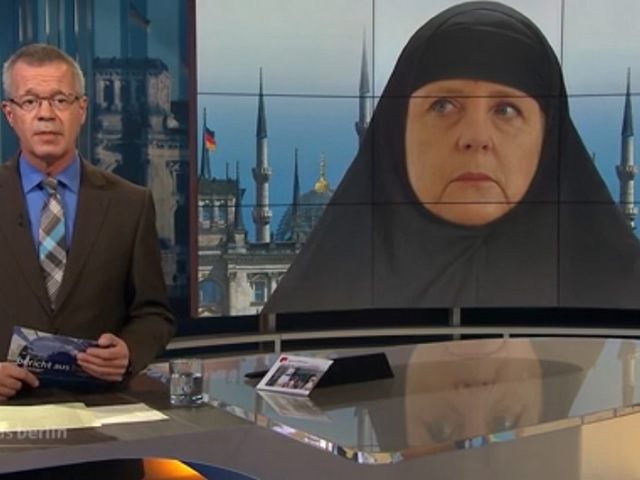A German political expert has warned that a successful Islamic political party is not a far off thought given Germany’s rapidly changing demographics. In an interview with the Neue Osnabrücker Zeitung newspaper, Prof. Jürgen W. Falter, who specialises in political extremism, noted that Chancellor Angela Merkel’s position on migration may soon change, claiming “Pandora’s box is opened too far”.
Prof. Falter said: “I do not think that the position of Mrs Merkel, with time, will be held. Her words are rowing forward, but below the surface, back already… certainly this has something to do with the fact she sees that she has to get the genie back in the bottle… a Pandora’s box is opened too far.
“[Her migration policy] was probably not meant the way it has arrived. But it sounded like an invitation to the entire world, unlimited refugees are welcome.”
His views on the rise of the Alternative fur Deutschland are also worthy of note, claiming that it was destined to become a small, regional party before the migrant crisis, but that now, it can flourish without really doing much at all.
And he warned about the rise of an Islamic political party in Germany – small versions of which may already have been witnessed elsewhere in Europe, such as with Tower Hamlets First in East London, and the Respect Party in Bradford, both in the United Kingdom.
He posits that despite Mrs. Merkel’s kind welcoming of many Muslims, it is unlikely they would vote for a party with the word “Christian” in its name.
“There’s doubt, first of all against the [Christian Democratic] Union (CDU), because it still bears “Christian” in its title. Even reduced to their basics, the CDU and CSU [Christian Social Union] are relatively strong names. This is naturally, for devout Muslims, not the party of first choice.
“Currently a large number of [Muslims] are believed to be active in rather simpler professions. In addition once they are integrated into the working life, they are more likely to vote for left-wing parties or possibly even for an established Islamic party.
“Currently, we have about five million Muslims living in Germany. Suppose there comes another million, plus family reunification. Then there will be between seven and eight million. This is not an entirely fanciful number. That would be in far enough for a minority party.”
In context: Angela Merkel’s party achieved 18 million votes in the 2013 federal elections, with the second party, the SPD, on 11 million votes. The third largest party, the “Left” party, got 3.7 million votes, the Greens got 3.6 million, and the more libertarian FDP got two million votes.
While there may be seven or eight million Muslims in Germany in the next few years, a significant percentage of these will be under the voting age, so any Islamic political party would be unable to acquire that number of votes. It may, however, have the capacity to outperform the FDP, the Greens, and even the Left party, maybe even making itself large enough to force itself into a governing coalition.

COMMENTS
Please let us know if you're having issues with commenting.